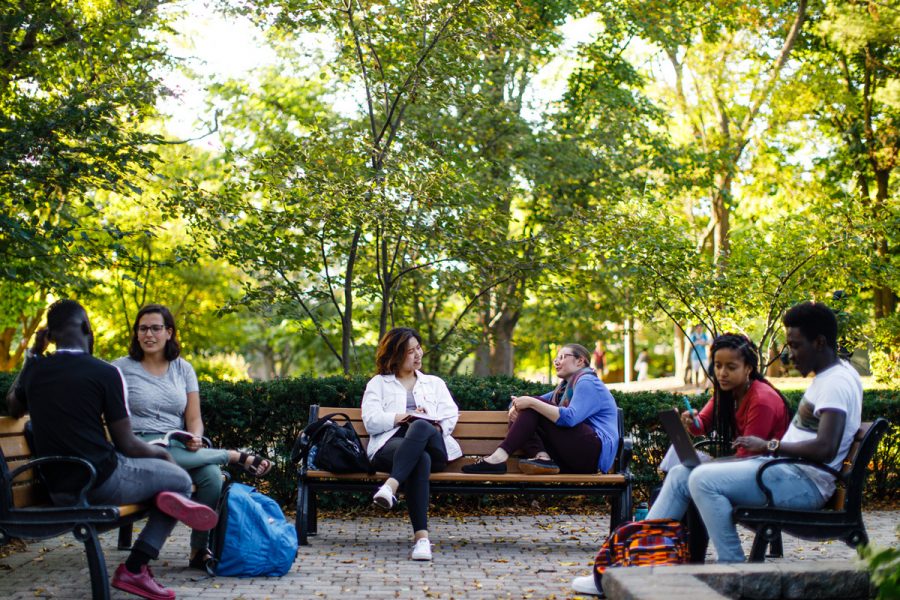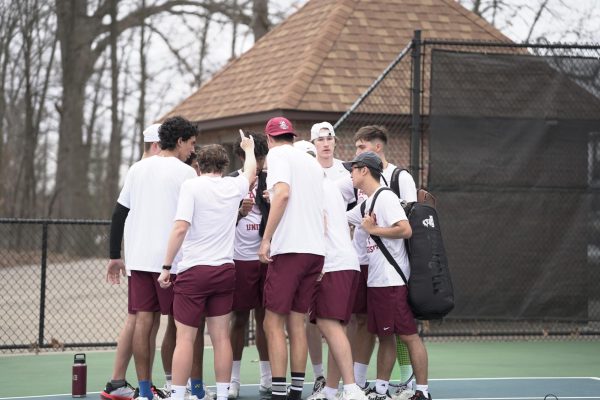Going global: new initiative prepares to expand the university’s reach
In an attempt to reach populations far beyond Calvin University’s physical campus, the office of the provost has begun planning online master’s degree programs to be offered starting this fall. The initiative is led by Associate Provost Kevin den Dulk, who was appointed to his position on Jan. 1 of this year.
The program, provisionally named Calvin Global Campus (CGC), plans to offer an online master’s degree in education in the fall of 2020. In the next four years, den Dulk said the program will begin to offer online master’s programs in strategic communication, speech pathology, public health, geographic information systems (GIS), public administration, business, exercise science and data analytics. Plans for the program are still tentative, and more graduate programs will be added as plans solidify.
To better design the online courses, Calvin partnered with Wiley Education Services (WES), a provider of online program management, on Jan. 31. WES will contribute their experience in designing online courses as well as assistance in market research and advertising, but Calvin faculty will remain responsible for developing the curriculum and content of courses. Den Dulk stated, “Our faculty still have full control over what the content is and even how they want to teach the course.” He later emphasized that this control over content will serve to maintain Calvin’s mission as the university seeks to reach new and diverse audiences.
CGC plans to initially focus advertising efforts on the Midwest, where Calvin is a known and trusted institution. However, den Dulk said that the university will not wait long to reach out across the country and around the world. When speaking of hopes for the program, he brought up Calvin’s connections to countries in Sub-Saharan Africa, Southeast Asia and Latin America, and the potential this network has for offering crucial education and skill development in foreign countries. “The idea is that our boundaries are really the globe itself once you start to operate with the online platform,” den Dulk explained.
Jason VanHorn, co-chair of the geology, geography and environmental studies department, said the department is excited by the prospect of offering an online Master of Science in GIS because “it will allow students to gain advanced knowledge in a post-graduate environment with a Christian perspective, no matter where they find themselves in the world.” The department currently offers one course online and will begin offering two more next year. The online master’s in GIS is expected to launch in the fall of 2021.
In addition to offering online graduate programs, CGC hopes to partner with regional businesses and nonprofits to offer professional and skill development programs tailored to the needs of individual organizations. Den Dulk explained that online education is only a third of what CGC hopes to do to expand the reach of Calvin’s mission. Other avenues that CGC plans to pursue include programs for those working in the correctional system, expanding offerings for lifelong learning, and creating options for pre-college education.
Most programs will offer varying options, from accelerated to self-paced. This range of required commitment will make programs accessible to recent graduates as well as adults with children or full-time jobs. CGC’s target population is diverse, and the options need to reflect that.
The cost per credit for CGC programs has not yet been determined, but den Dulk expressed that the price per credit will be different than the cost at the residential campus. Although on-campus tuition has a high sticker price, financial aid often lowers the price significantly. CGC programs are planned to offer a very low sticker price without access to much financial aid. Prices across online programs may also differ, while program prices on the physical campus are typically similar. Den Dulk added, regarding the initial investment from the university, that each program is expected to pay for itself within three to five years of its introduction. Programs will also be subject to review and evaluation every few years.
While many of the offered programs seem to be connected to current programs offered at Calvin’s physical campus, den Dulk said that the program will do its best to avoid redundancy. Many of the programs will build upon courses offered during undergraduate studies at Calvin, but they won’t repeat or replace them. “Introducing this new global campus is a way to really strengthen the residential campus at the same time,” den Dulk stated. Going on to speak about the need for outside instructors to partner with Calvin faculty in teaching online courses, he said, “I think it will actually bring in new faculty and ideas… we will need lots of people to teach online courses.”
Den Dulk, who described his work as “learning to build the house while living in it,” will continue to develop and solidify plans for the degrees to be offered online as this fall approaches. The university will release further information as plans become more concrete.









